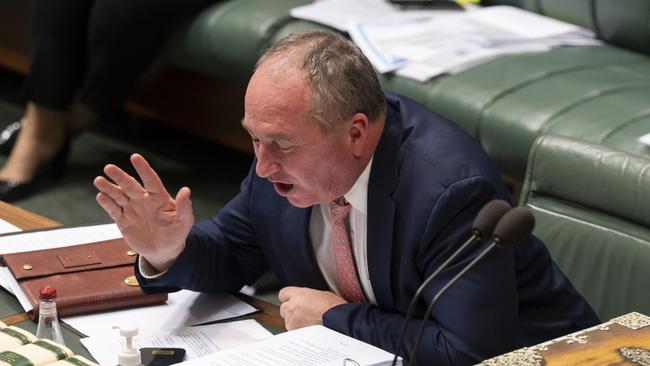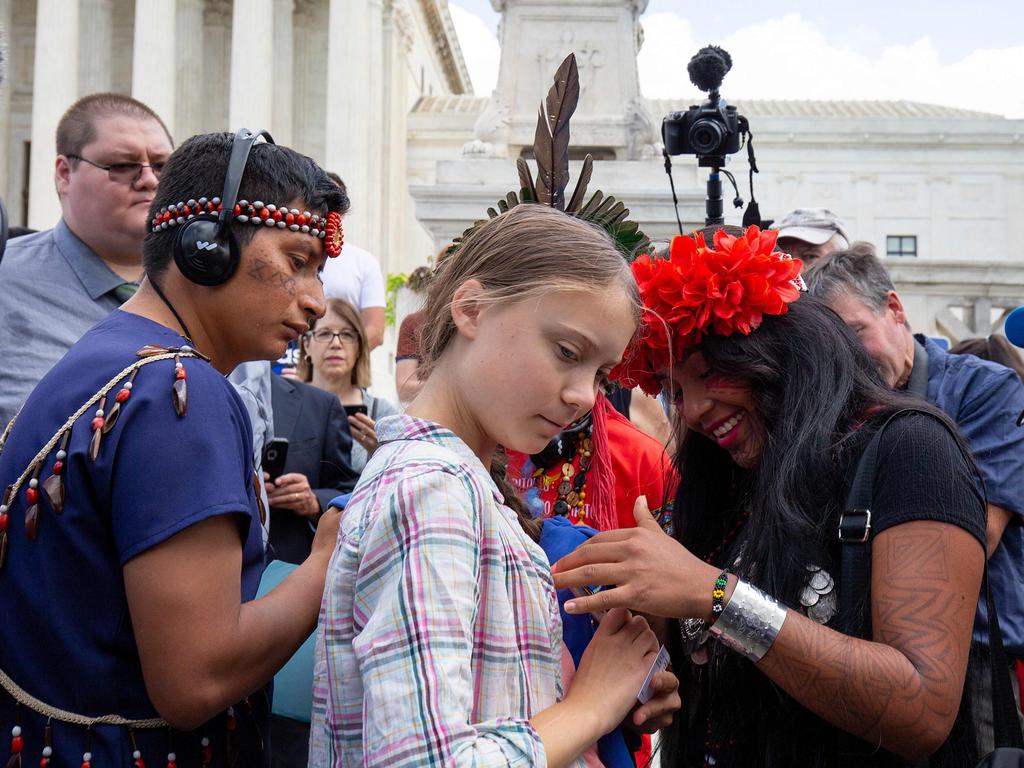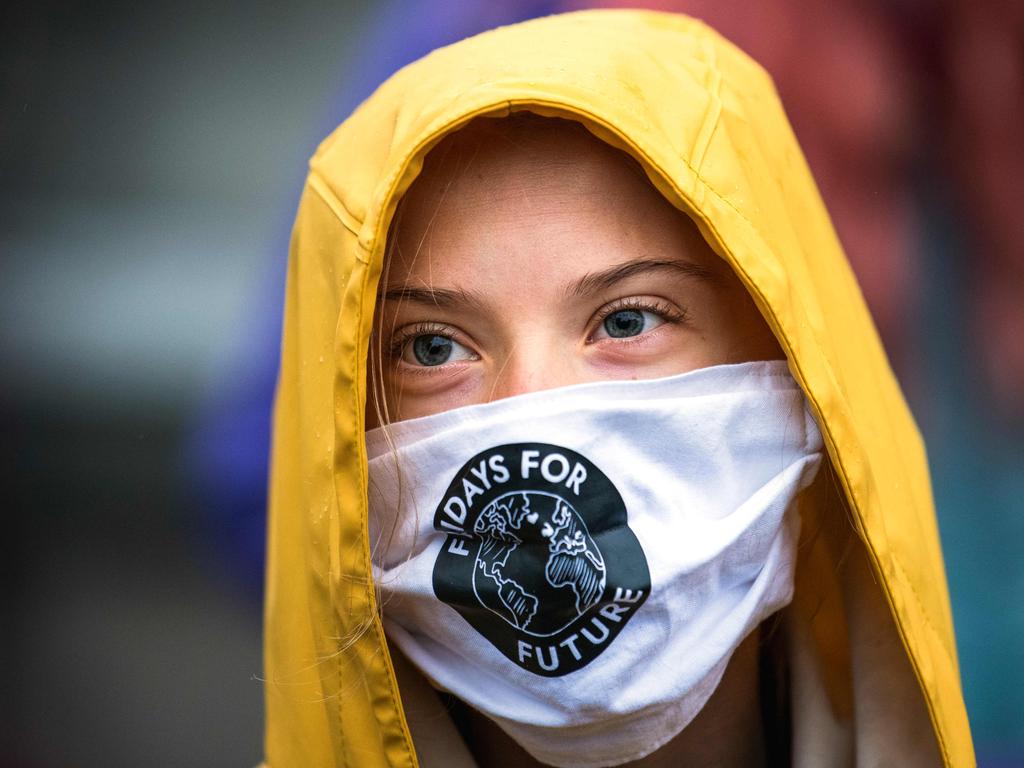Barnaby Joyce’s return puts focus on realities of emission targets
The only colleagues whose promises can be trusted are those who declare they’ll be supporting someone else. The same applies to net-zero.

It’s much the same with the drive towards net zero carbon dioxide emissions by 2050. Take the recent Group of Seven meeting in Cornwall, which included Australia as a guest, for example. The only commitment that can be relied on was that proffered by Australian Prime Minister Scott Morrison.
He said that Australia was committed to zero net emissions, preferably by 2050. So there was a promise – but of a qualified kind. All other leaders signed up to the zero by 2050 target without indicating how it can be attained.
There was nothing unusual in the change of leadership in the Nationals party this week which saw Barnaby Joyce replace Michael McCormack as leader and, consequently, deputy prime minister in the Liberal Party-Nationals Coalition government.
Since John Howard led the Coalition to defeat in 2007, some seven political leaders have lost the support of their colleagues in the party room.
On the Labor Party side – Kevin Rudd (2010) and Julia Gillard (2013). Among the Liberals this fate has befallen Brendan Nelson (2008), Malcolm Turnbull (2009), Tony Abbott (2015) and Malcolm Turnbull (2018). Michael McCormack is the only one to have lost his position in a Nationals party room ballot during this period.
One of the Nationals’ problems in recent times is that it had three of its best performers on the backbench – Matt Canavan, Barnaby Joyce and Bridget McKenzie. Joyce has now returned to the front bench with McKenzie likely to follow.
Canavan appears to be content to use his current position as a prominent Queensland backbencher to advance political causes, for the moment at least. At age 40, he has years available to him in politics.
There is considerable commentary that the return of Joyce to the deputy prime minister’s position (from which he resigned in 2018) will cause problems for the Coalition. This may be the case but it appears unlikely.
Elections in Australia are invariably close. In this regard it is notable that, in the past, Joyce has polled well. Howard once noted that votes in ballot boxes were a far more accurate indication of public opinion than opinion polls or the observations of commentators.
In August 2013, Joyce took the politically courageous decision to resign from his safe Queensland Senate position in order to contest the NSW seat of New England against the incumbent independent Tony Windsor. As it turned out, Windsor did not contest the election and Joyce won the seat comfortably with a primary vote of 54 per cent.
In 2016, Windsor decided to recontest New England. He was popular with sections of the media, especially the ABC and Fairfax Media (now Nine). But Joyce attained 52 per cent of the primary vote to Windsor’s 29 per cent.
Joyce got caught up in the citizenship controversy and had to resign his seat. He won the resultant by-election in 2017 with a primary vote of 67 per cent. And Joyce won again in 2019, with a primary vote of 55 per cent, standing down as deputy prime minister amid controversy about his private life and a sexual harassment allegation which he denies.
Joyce (born 1967) was brought up a Catholic at a time when young Catholics still learnt about The Fall, original sin and all that. As was evident this week, he recognises his most serious faults and does not claim to be of the St Francis of Assisi kind.
The evidence out of New England suggests that if Joyce has a problem with the female vote then his opponents in New England must have quite a dilemma with males.
ABC news and current affairs ran the line about Joyce and women during the week. ABC Radio National Breakfast presenter Fran Kelly’s interview with Alana Johnson was headed “Barnaby Joyce’s women problem”. Johnson was also interviewed by Sabra Lane on AM and Laura Tingle on 7.30.
Introduced as a founding member of Australian Women in Agriculture, Johnson was highly critical of Joyce at the personal and political level.
Only Kelly mentioned, albeit fleetingly, that Johnson is involved in the Voices for Indi (V4I) movement which successfully campaigned against the Coalition in the Victorian rural and regional electorate of Indi in 2013, 2016 and 2019.
Those who get their news from AM or 7.30 would have no idea that Johnson is an opponent of the Nationals Party which Joyce heads.
On Tuesday, and again on Wednesday, every letter in The Sydney Morning Herald on the leadership change was hostile to either Joyce or the Nationals, usually both – often in a mocking way. This is an example of how the left tends to misread Australian politics.
It’s easy for commentators to laugh at Joyce and dismiss the Nationals’ concern about the impact of setting firm emissions targets which will adversely effect jobs in mining and manufacturing industries along with low socio-economic Australians hit by increasing energy prices. But a pertinent warning was sent to the Labor Party on Thursday by former Labor Senate leader Stephen Conroy.
Speaking on Sky News’ Paul Murray Live, Conroy reminded Labor supporters that at the 2019 election “the grand combined vote of people in Australia that supported a tougher position on climate change policy than the government was 42 per cent”. He added, “that’s 58 per cent support for the Coalition’s position”.
Conroy’s advice to his one-time parliamentary colleagues was that Labor should disassociate itself from the Greens and start talking about something other than climate change if it wants to win the next election. He seems to be of the view that putting the word “preferably” before 2050 when talking about emissions targets works for Morrison. After all, at least it’s believable.
Gerard Henderson is executive director of the Sydney Institute. His Media Watch Dog blog can be found at www.theaustralian.com.au







There is a wise saying known to participants in, and observers of, leadership challenges that take place within the Westminster political system. Namely, the only colleagues whose promises can be trusted are the ones who readily declare that they will be supporting someone else. They have no reason to deceive or fudge.